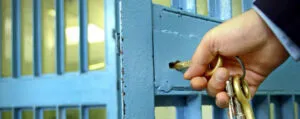California Restraining Order Attorney
My Rights Law’s Restraining Orders Lawyer Can Handle All Aspects Of The Restraining Order Process
If you believe that your health or safety is being threatened, obtaining a restraining order to prevent the other person from contacting or interacting with you can provide peace of mind. In California, you do not need to be related to, married to, or even in a relationship with the other person to get a restraining order. Unfortunately, restraining orders can also be used as weapons in civil disputes and can create a problematic situation for the ” restrained person.”
If you reside in California and have had a restraining order filed against you that you believe to be unfair or falsely obtained, the criminal defense team at My Rights Law can help you navigate the legal process and defend your rights and reputation. For a free consultation, contact us immediately through our online form or by calling (888) 702-8845 or leave us a message on our secure form and we will promptly get back to you.
- 1. What Is A Restraining Order?
- 2. What Types Of Restraining Orders Are There?
- 3. 1. Abuse of an elder or dependent adult restraining order
- 4. 2. Workplace violence restraining order
- 5. 3. Domestic violence restraining order
- 6. 4. Civil harassment restraining order
- 7. What Levels Of Restraining Orders Are There?
- 8. 1. Emergency Protective Order, or EPO
- 9. 2. Temporary Restraining Order, or TRO
- 10. 3. Permanent Restraining Order
- 11. How Do I Fight A Restraining Order?
- 12. Violation Of A Restraining Order
- 13. Defending Against Charges That Say I Violated A Restraining Order
- 14. Call My Rights Law California Restraining Order Attorneys
What Is A Restraining Order?
According the the California Code of Civil Procedure (C.C.P.) §527.6 , a restraining order protects one person from physical or verbal threats made by another. A court order sets boundaries and limits on behavior to protect the person being threatened. These orders can protect against actions like:
- Verbal harassment
- Threats or acts of violence
- Stalking
- Excessive contact via email, text, or phone calls
The court can also require the restricted person to remain a specific distance away from the individual and from specific locations, property, or places of employment and can even require the restricted individual to move out of the residence to comply with the terms of the order.
What Types Of Restraining Orders Are There?
California recognizes four specific areas where restraining orders may be issued:
1. Abuse of an elder or dependent adult restraining order
- When the person is 65 or older OR between 18 and 64 with mental or physical disabilities, and
- When the person suffers abuse or neglect from a caregiver.[1]
2. Workplace violence restraining order
- When the person is an employer, and
- When the person wants to protect employees from a credible threat of violence or abuse in the workplace.
3. Domestic violence restraining order
- When the person has a “close relationship”[2] with the other party, through marriage, dating, domestic partnership, cohabitation, sharing a child, or other familial relationships,[3] and
- When the person has suffered abuse by the other party.
4. Civil harassment restraining order
- When the person is being harassed, threatened, stalked, or abused by another, and
- When the person is not in a “close relationship” with the other party.
(Civil harassment restraining orders may be obtained for up to five years[4])
What Levels Of Restraining Orders Are There?
There are three levels of restraining orders that may be issued depending on the circumstances of the situation.
1. Emergency Protective Order, or EPO
- Effective for five business days or seven days total
- May be requested by law enforcement responding to a domestic violence call if immediate protection is needed
- Generally issued pending a hearing for a temporary restraining order
- Requires the restricted person to turn in, sell, or legally store any firearms within 48 hours
2. Temporary Restraining Order, or TRO
- Generally, lasts for a few weeks or until a hearing date
- May be issued if a judge believes protection is required before hearing the case
- May be converted to a permanent restraining order at the court hearing on the case
- Requires the restricted person to turn in, sell, or legally store any firearms within 48 hours
3. Permanent Restraining Order
- May only be issued after a hearing is held
- Length varies depending on the type – Domestic Violence may be up to five years
- Requires the restricted person to turn in, sell, or legally store any firearms within 48 hours
How Do I Fight A Restraining Order?
Restraining orders can wreak havoc on your personal and professional life. They can restrict your movement, your ability to communicate with a co-parent, and even where you are allowed to live and work. These serious ramifications demand that you combat restraining orders or charges of violation of restraining orders with an aggressive and tactical response.
After being served with a TRO, a hearing will typically be held within three weeks. At that hearing, your defense attorney will present evidence, call witnesses, and argue that the restraining order was unnecessary and unwarranted. Every effort must be made to convince the judge to allow the TRO to expire and refrain from issuing a permanent order. Some arguments include:
- Lack of credible threat
- Insufficient evidence
- False accusations or misrepresentations
The team at My Rights Law is uniquely qualified to guide you in that response. If you have been served with an EPO or TRO, you must retain skilled counsel to help you fight to keep the order from becoming permanent.
Violation Of A Restraining Order
Violation of a restraining order can result in misdemeanor or felony charges depending on the circumstances. To convict you, the prosecutor must prove that you knew of the existence of a restraining order and willfully violated it.
- If convicted of a misdemeanor, you could face up to a year of jail time and a fine.[5]
- If you have a previous conviction for violating a restraining order or your current violation included a violent act, you could be charged with a felony and face up to three years in prison and a significantly greater fine.
- If you violate the prohibition against firearms, you could face additional charges with up to three years in prison and additional fines.
Defending Against Charges That Say I Violated A Restraining Order
Mounting a defense against charges of violating a restraining order requires a knowledgeable and persuasive attorney. The team at My Rights Law will carefully assess the facts of your situation to create a defense plan. Some possible defenses could include:
- That you accidentally, not intentionally, violated the restraining order – for example, by driving by a location the other party was at without knowing they would be there.
- That you cannot physically comply with the restraining order for some valid reason – for example, your work requires you to pass through a location the restraining order prohibits.
- That the restraining order was issued under false pretenses or in some way is invalid.
- That the other party is falsely accusing you of violating the order.
- That you were unaware of the restraining order (if it was never served on you).
- That the other person violated the terms of their own restraining order.
Even if you believe the restraining order is invalid or have a valid defense for any violation accusation, you cannot simply ignore it. You must appear in court at the appointed time to present your side of the case. With the assistance of a talented advocate like the attorneys at My Rights Law, your chances of prevailing or limiting the effects on your life increase.
Call My Rights Law California Restraining Order Attorneys
My Rights Law protects our clients through our expertise in the law and extensive experience in handling all misdemeanor and felony criminal cases including, but not limited to, alcohol-related crimes, drug crimes, violent crimes, domestic violence, sex crimes, crimes against children, theft crimes, juvenile delinquency crimes, gun crimes, property crimes, cybercrimes, driving offenses, public safety crimes, federal crimes, financial crimes, crimes against the government, crimes against justice, and inchoate crimes. We also specialize in restraining orders, pretrial diversion programs, and expungements.
A restraining order lawyer can help you with civil harassment restraining orders, among other orders issued by a court to protect an individual, their businesses, or their family from harm. It is best to hire a Los Angeles restraining order attorney where there is an allegation of stalking or harassment as this could lead to a restraining order. For example, domestic violence restraining orders might stem from an alleged violent felony, assault and battery, or sexual assault. An order tied to a domestic violence case can last for years.
Temporary restraining orders (TRO) give the court the power to order an individual to stay a certain distance away from a house, person, group of individuals (such as all of the other members of a family in a domestic violence case) or business. The restraining order might have a “no contact” provision, ordering the individual to refrain from making any contact via phone, email, note, delivery, etc.
While you are waiting for your opportunity to fight a restraining order or criminal charge of violating a restraining order, your every move and action will be subject to scrutiny. Our experienced team at My Rights Law can help you conduct and present yourself in a manner most favorable to your case. For a free consultation, contact us immediately through our online form or by calling (888) 702-8845.
FOOTNOTES
[1] California Courts website.
[2] California Code of Civil Procedure 527.6 CCP.
[3] California Code of Civil Procedure 527.6 CCP.
[4] California Code of Civil Procedure 527.6 CCP.
[5] See California Penal Code 273.6 PC.











